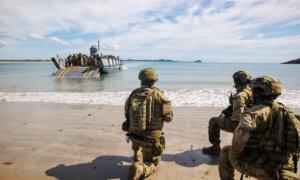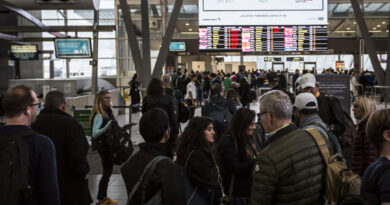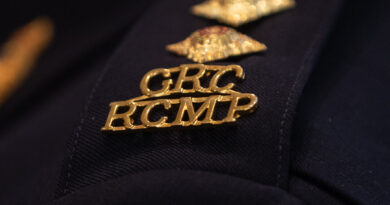An investigation reveals that the Australian military is facing a significant loss of skilled personnel and valuable experience
The inquiry into the deadly Taipan helicopter crash last year has heard the ADF is losing significant experience and talent.
An Australian Army aircrewman—identified only by the pseudonym “D4”—has told an inquiry the military must address the “haemorrhaging” of experience and corporate knowledge.
Former Justice Margaret McMurdo is conducting an independent inquiry into the crash of an MRH-90 Taipan helicopter, off the north Queensland coast in July 2023, that killed four soldiers.
It is the fifth public hearing into the deaths of Captain Daniel Lyon, Lieutenant Maxwell Nugent, Warrant Officer Class Two Joseph Laycock, and Corporal Alexander Naggs.
Their aircraft, callsign “Bushman 83,” was one of four helicopters flying to Lindeman Island to collect Australian Defence Force (ADF) personnel who were taking part in Exercise Talisman Sabre, training with American forces.
D4, who was on board Bushman 81, was questioned by counsel assisting the inquiry, Flight Lieutenant Alexandra Rose, about a statement in which he said, “Junior personnel in the army generally are promoted to leadership positions prematurely because experienced soldiers and officers are leaving.”
‘Serious Intervention’ Needed: Witness
Army Aviation was losing experience and corporate knowledge at a non-recoverable rate without serious intervention, the corporal said in his statement.
“The experience across our aircrew workforce is continuing to slide, and something does need to be done. Otherwise, we’re just not going to have the experience required to grow and foster future generations.”
However, he did not believe that current aircrew were out of their depth or not suited to their positions.
“I just think that when they’re compared to the experience levels that we’ve had previously in defence, the depth isn’t there.”
The inquiry has previously heard that the four helicopters took off from Proserpine airport, entering a holding pattern while waiting for confirmation that ADF personnel on the island were ready to be picked up.
It was told that rain was so heavy on the night of the crash that it was approaching the threshold for cancellation. Instead, the flight path was altered, and crews were told to continue the mission.
The helicopters made the first turn in formation, but at the second turn, Bushman 83 suddenly climbed into the air before plummeting into the water, killing all four crew members.
The force of the impact was so severe that the bodies of the soldiers were never fully recovered.
Series of Close Calls
Army pilots have previously told the Inquiry of a series of close calls flying the MRH-90 Taipan leading up to the 2023 crash. The fleet has since been removed from service more than a year before its intended withdrawal date.
The aircraft were unnecessarily complex and clunky to fly, one pilot said.
Another said the helmet-mounted goggles used by soldiers created significant visibility issues, including altering the perception of ground speed and location.
Earlier on Oct. 14, another aircrewman—known as D8—said he had previously held concerns about the fleet’s safety after an incident over Jervis Bay in March 2023, when an MRH-90 suffered engine failure, causing it to ditch into the sea.
D8 told the Inquiry he had “very little confidence” in the aircraft because he was worried there were unknown issues or problems that crewmen weren’t told about.
He said there had been two groundings because of technical failures and one because of a software problem.
“When you have those in an aircraft and someone doesn’t tell you it’s a problem … had I known that those engines were not modified to be as safe as possible, I probably wouldn’t have got on the aircraft [before the Jervis Bay incident].”
AAP contributed to this report.





